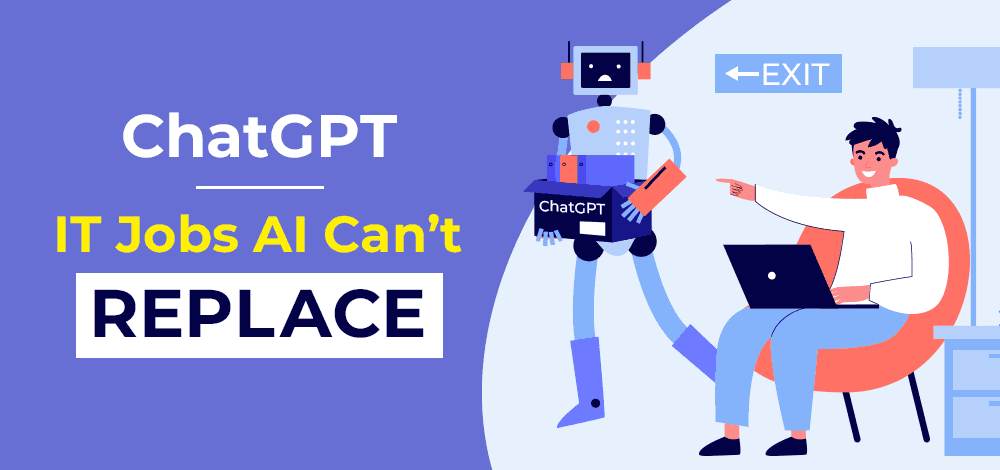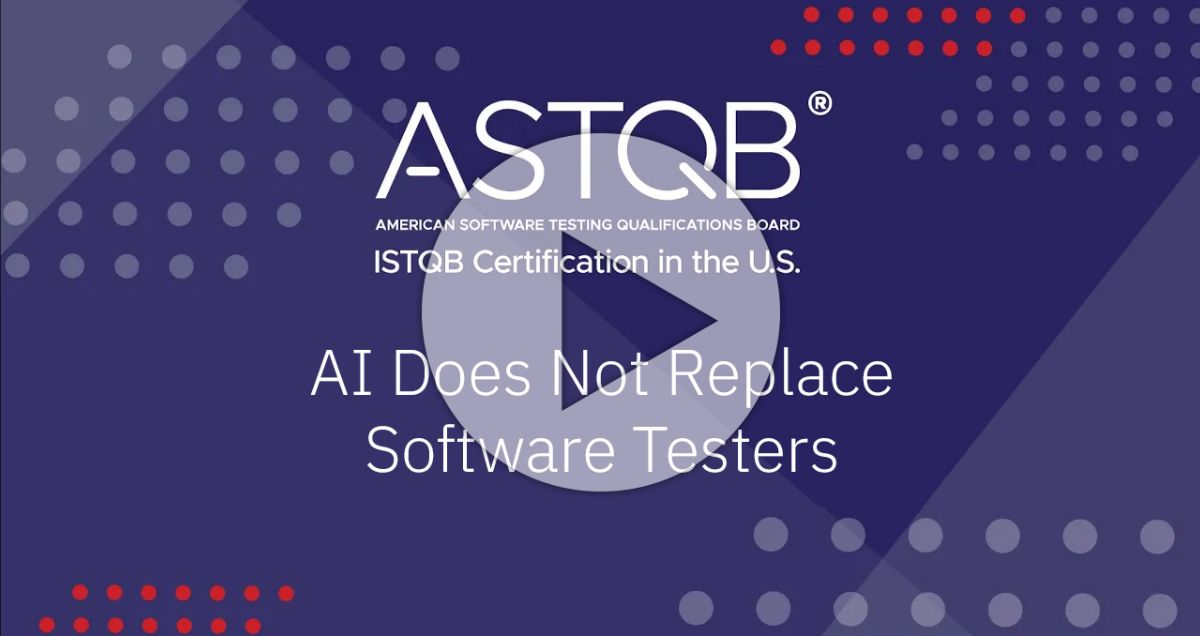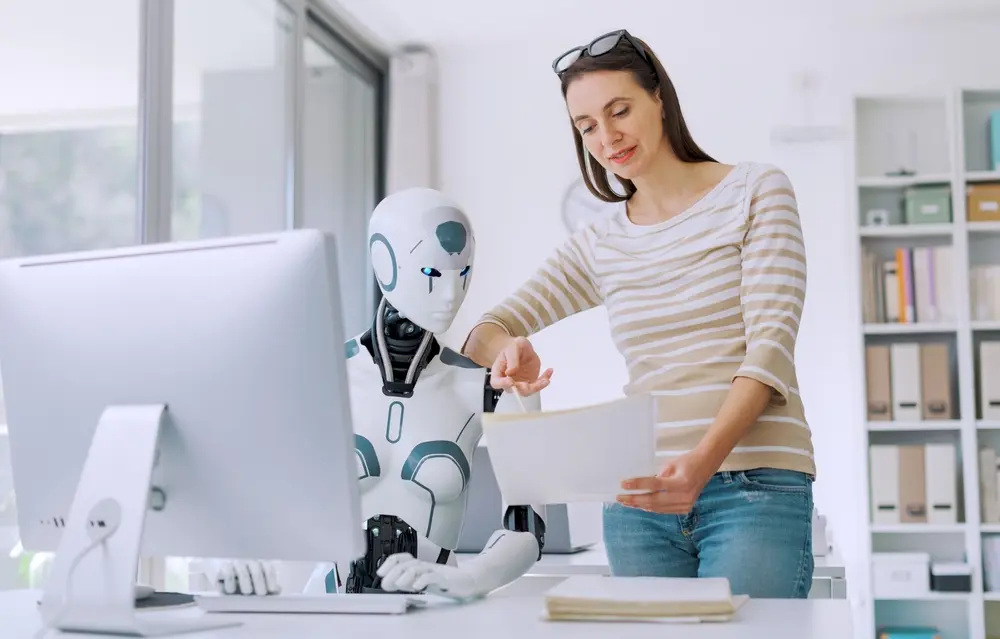The rise of AI has everyone talking, especially about job security. For software testers, a big question looms: will AI take over their roles? It's a fair concern, with new technologies reshaping industries faster than ever. Let's unpack this hot topic together, keeping it simple.
This post dives into how AI is changing software testing. We'll look at tasks AI now handles and, more importantly, the unique human skills AI can't replicate. Get ready to explore how testers can not just survive, but thrive in this evolving tech landscape.
We'll also peek at current job market trends and what it means for your career. By the end, you'll have a clear picture of AI's impact, understand the need for upskilling, and see how the future of testing is becoming even more exciting.
Table of contents
AI and Testers: A Match Made in Tech Heaven?
Software testers are experiencing a wave of evolution with the rise of AI in their field. While some fear AI might take their jobs, the reality is more nuanced. According to a GeeksforGeeks article, AI is enhancing testing by automating repetitive tasks, but it won't replace the human touch required for complex problem-solving and creative test case development.
The sentiment among testers is largely optimistic. Many see AI as a tool that will augment their capabilities, allowing them to focus on more strategic tasks. As detailed by Jalasoft's experts, AI is expected to handle mundane tasks, enabling testers to engage in exploratory testing and usability evaluations where human intuition excels. This synergy promises a future where AI and testers work hand-in-hand, creating new opportunities for efficiency and innovation.
Nonetheless, the transformation demands a shift in skills. A Tricentis blog highlights the necessity for testers to upskill, particularly in AI technologies and machine learning. As AI reshapes the testing landscape, those who adapt are likely to thrive, embracing AI as a powerful ally rather than a looming threat.
What parts of Software Tester is AI replacing?
AI is transforming the landscape of software testing by taking over several tasks traditionally handled by human testers. A ResearchGate study identifies that AI can automate test case generation, thereby reducing manual efforts significantly. By analyzing code and user behaviors, AI can create comprehensive test scenarios, making the testing process faster and more reliable.

Credits: arXiv
In addition to generating test cases, AI is enhancing defect detection by using predictive analytics. AI algorithms can identify potential defects faster and with greater accuracy than manual testing. According to a systematic review on arXiv, AI tools also assist in regression and performance testing by automatically selecting relevant test cases and simulating user interactions to assess software performance. This allows testers to devote more time to strategic decision-making and creative problem-solving.
What parts of Software Tester AI cannot replace
Despite the rise of AI, certain aspects of a software tester's role remain uniquely human. One such aspect is human judgment. According to a Carnegie Mellon University study, understanding user experience involves subjective evaluation and understanding of human behavior, which are areas where AI lacks depth. AI might catch obvious bugs, but it often misses the nuanced issues that affect user satisfaction.

Credits: GeeksforGeeks
Another area where AI falls short is in creative testing strategies. Software testers often need to think outside the box to design test cases that cover edge scenarios and unpredictable user behaviors. This kind of creativity, as discussed in GeeksforGeeks, is something AI cannot replicate. The adaptability to new methodologies and collaboration with developers for effective communication also highlight the irreplaceable human aspect.
Additionally, the importance of contextual understanding cannot be overstated. Testers need to grasp the larger picture, including business goals and user needs. As cited by Harvard Business Review, this understanding informs their testing approach and priorities, ensuring alignment with the overall project vision. AI lacks the capability to comprehend these complex interconnections.
Career Evolution for Software Testers in the AI Era
The software tester role is transforming as AI integrates into development cycles. Manual testing shifts towards overseeing automated processes and validating AI-powered systems. Testers will focus more on designing test strategies for complex AI behaviors.
To adapt, testers should embrace change by learning new programming languages and automation frameworks. Continuous learning in areas like AI and machine learning is important to keep skills sharp. This includes understanding how AI impacts quality and testing methodologies.
Testers can specialize wisely in fields such as AI-driven testing solutions or performance testing. Adapting to automation means mastering tools that facilitate automated checks and engaging with the broader testing community. This proactive approach helps secure a relevant future in the industry.
Current job market for Software Testers in the US
The software testing job market in the US is thriving, with over 46,000 job listings available on LinkedIn as of now. Recently, about 33,574 positions were posted in the past month, showcasing a significant demand for software testers. This trend is supported by data indicating that a large portion of these roles is full-time, with competitive salaries that vary by experience level and specialization (LinkedIn).
Moreover, the Indeed 2025 US Jobs & Hiring Trends Report reveals that job postings in November 2024 surpassed pre-pandemic levels by 10%, reflecting a resilient labor market. Employers are increasingly adapting to new technologies, including AI, which is expected to enhance productivity in testing processes (Indeed). This indicates a favorable outlook for software testers, particularly as companies focus on quality assurance.
Is Software Tester AI safe?
The role of a software tester is often perceived as under threat from AI, yet the reality is more nuanced. AI is indeed transforming the software testing landscape by automating repetitive tasks like test case generation and bug detection, as highlighted by ASTQB. However, human testers excel in areas that AI cannot replicate, such as creativity, intuitive problem-solving, and understanding complex user interactions.

Credits: ASTQB
According to Jalasoft, AI can enhance testing efficiency, but it cannot fully replace the human judgment that is essential for interpreting results in the context of user experience and business objectives. The software testing profession is not at high risk of being entirely automated. Instead, AI tools are expected to complement human testers, enabling them to focus on more strategic and adaptive tasks.
Hiring Software Testers? Here's what to look for
In the evolving world of software testing, you should look for candidates with not only technical expertise but also an understanding of AI and machine learning. Skills such as automation proficiency, analytical thinking, and excellent communication are key. Using Adaface's Prompt Engineering Test can ensure that candidates have the necessary skills to design and evaluate AI-based prompts.
Screening candidates effectively is crucial, and Adaface helps streamline this process. The Generative AI Test assesses the candidate's ability to work with AI tools, ensuring they're prepared for modern testing challenges. Furthermore, the Web Testing Online Test focuses on practical web testing skills, enabling you to identify candidates who can handle real-world testing scenarios.
Prompt Engineering Test
Generative AI Test
Web Testing Online Test
Software Testing's Next Chapter: Empowered by AI
For software testers, the arrival of AI is not a threat, but a profound opportunity to shape the future of quality. AI is stepping in to manage repetitive tasks like test execution and data analysis, liberating human minds for more intriguing challenges. This shift allows testers to dive deeper into exploratory testing, user experience evaluation, and strategic problem-solving, where human intuition and creativity shine brightest, as highlighted by Jalasoft's experts and MagicPod.

Credits: Jalasoft
Looking ahead, the landscape for QA professionals is expanding with exciting new specializations, from AI Test Architects to Data-Driven QA Analysts. Dean Bodart on LinkedIn notes that organizations positioning testers as AI collaborators achieve unprecedented quality and operational gains, a sentiment echoed by ACCELQ. This leads to a dynamic career trajectory for testers, focusing on higher-value activities and fostering innovation.
The synergy between human testers and AI isn't just a trend; it's a strategic partnership creating a brighter future for software quality. This collaboration promises not only faster releases and increased coverage-with reports showing an 85% increase in coverage and a 30% reduction in costs-but also more stimulating and impactful roles. Embracing AI means stepping into a world where innovation thrives, and human ingenuity is amplified, ensuring software products are better than ever.

40 min skill tests.
No trick questions.
Accurate shortlisting.
We make it easy for you to find the best candidates in your pipeline with a 40 min skills test.
Try for freeRelated posts



